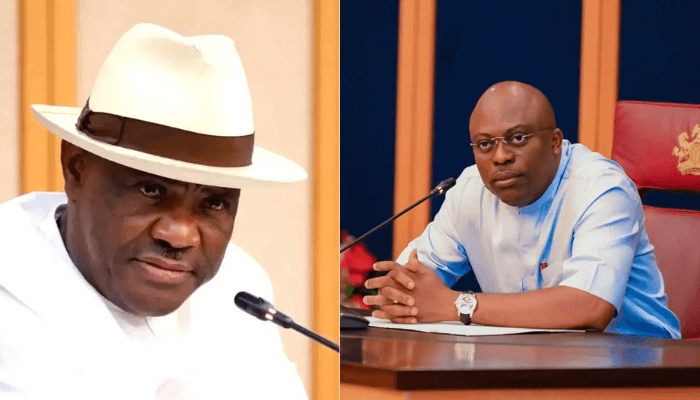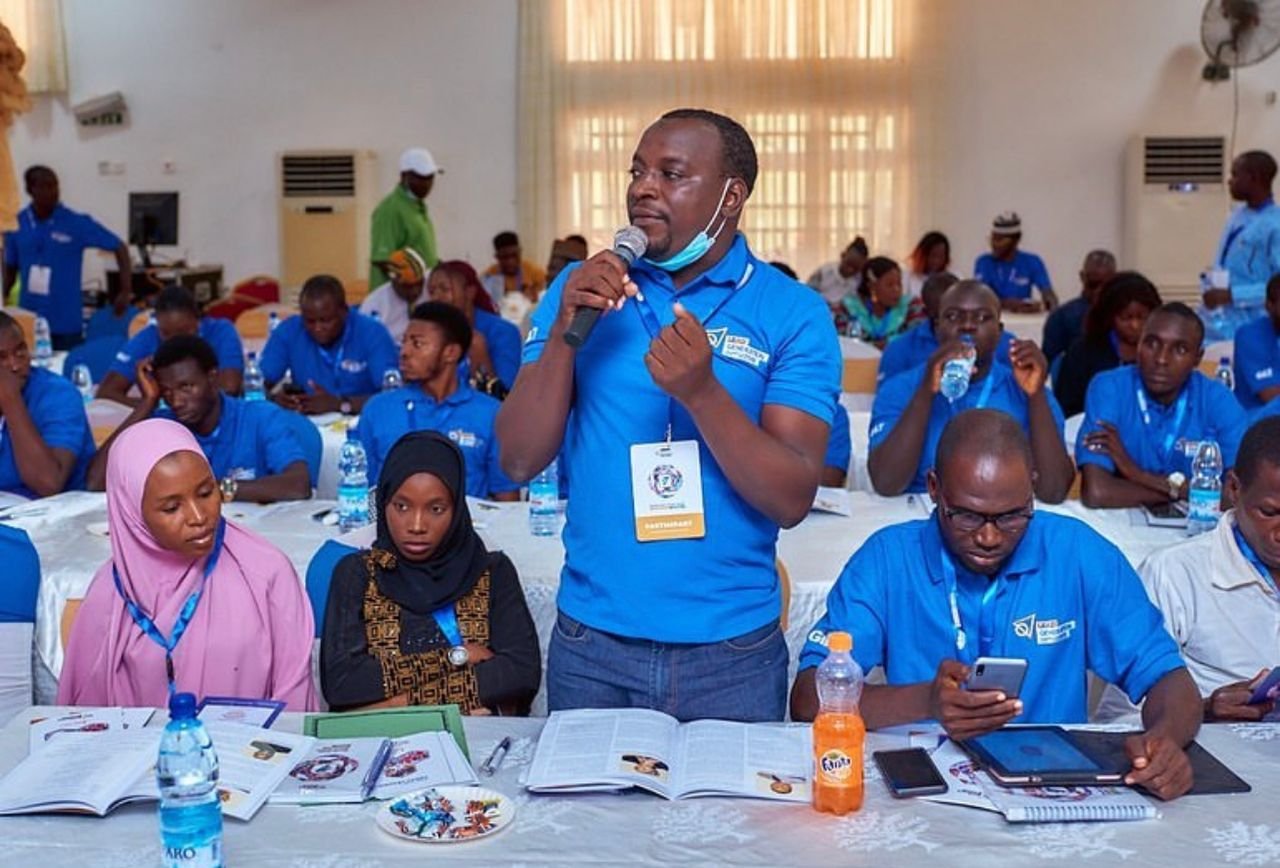In response to current socio-economic and security challenges facing Nigeria, particularly with the killings in Plateau, Benue, Edo, among other States, resulting to the deaths of more than 100 Nigerians in almost one month, the Lead Generation Initiative has held it’s Quarterly General Assembly and National Socioeconomic and Security Roundtable, proffering practical solutions to the challenges.
On security and ethno-religious violence across the country, and the emergence of the ‘Mahmuda’ Terrorist Network, the General Assembly expresses deep concern and strongly condemns the recent surge of violence in Plateau, Edo, Benue, and Gombe States. Among the most disturbing incidents is the mob killing in Uromi, where 16 individuals were extrajudicially executed on mere suspicion of kidnapping. Such acts of jungle justice are not only unlawful but also inhumane and a gross violation of fundamental human rights.
Beyond these individual flashpoints, a disturbing national pattern is emerging, one where violent actors are establishing dominance across nearly every state, from the North to the South. States such as Delta and Ondo have become critical zones, with this wave of unrest now extending swiftly into several other southern regions. From the protracted farmer-herder conflicts in Benue, to escalating religious tensions in Gombe, and recurring mob actions in Edo, Nigeria’s internal security threats are clearly national, not regional. This calls for urgent and coordinated multi-level interventions. Compounding the situation is the emergence of a new terrorist faction known as the Mahmuda group, operating predominantly in the North-Central region, especially around Kainji Lake National Park across Kwara and Niger States. Reports suggest that the group, believed to be a splinter from Boko Haram with operational links to Niger and Mali, has carried out a series of deadly attacks on rural communities, including the recent killing of over 15 vigilantes in Kemanji.
They called on the government at both the federal and state level to implement and intervene through Community Policing & Collaboration – as it is crucial to beyond the establishment of state policing, actively engage local communities in security efforts through neighborhood watch initiatives, anonymous tip-off channels, and by fostering trust between citizens and law enforcement agencies. Also, ensure Youth Empowerment Programs – that will help address the root causes like unemployment and idleness through vocational training, entrepreneurship funding, and mentorship schemes targeted at at-risk youths
The Assembly called for judicial Reforms, to ensure speedy prosecution of criminal elements and eliminate corruption within the judicial system. It is also important to ensure socioeconomic development, by Investing in infrastructure, education, healthcare and social services, particularly in vulnerable areas, to reduce the appeal of joining Criminal Groups.
Insecurity
More importantly, review Anti-Grazing Legislation, and initiate a thorough review of existing anti-grazing laws to balance the needs of nomadic herders and farming communities. This will help reduce tension and minimize rural conflict.
While effective livestock management is key, given the mandate of the Ministry of Livestock to implement robust tracking and management systems for livestock. This is vital in hotspots like Benue and Plateau to reduce clashes. But this cannot be achieved without Integrated National Data System. There is therefore a need to develop a centralized database that integrates biometric data, criminal records, and other vital security information to enhance proactive response and national planning. Also, ensuring Real-time data sharing between security agencies is vital
The Assembly further called for Security Weaponry Inventory and Training, to audit and upgrade the weapons inventory of security and vigilante groups.
The Assembly further called for community sensitization and urged security institutions to launch nationwide civic education campaigns to promote legal justice processes and curb jungle justice. This should include media, school outreach, and religious institutions.

On the political crisis in Rivers State, in the light of the recent declaration of a state of emergency in Rivers State by President Bola Ahmed Tinubu, which includes the six-month suspension of Governor Siminalayi Fubara, his deputy, and members of the State House of Assembly. The General Assembly expresses grave concern over the implications such action holds for democratic governance in Nigeria.
While the Federal Government has a constitutional responsibility to uphold law and order, the Assembly insists that all interventions must align strictly with constitutional frameworks in order to protect the integrity of democratic institutions.
The Assembly is deeply troubled by the growing trend of political godfatherism and unwarranted federal interference in state affairs. These practices erode state autonomy, undermine the democratic process, and compromise the principle of separation of powers.
Several members of the Assembly raised concerns that the reinstatement of Governor Fubara, under controversial terms, may further entrench godfatherism. There are fears that this move may subject the Governor to political subservience, rendering his office ineffective and unable to act in the best interest of the people of Rivers State.
The Nigerian Bar Association (NBA) has condemned the action, describing it as unconstitutional and a violation of democratic norms. The General Assembly echoes this sentiment and warns that allowing such actions to stand sets a dangerous precedent, and one that could easily be replicated across other states and institutions, threatening the nation’s democratic stability. In moments like this, silence is not neutrality but consent. The General Assembly calls on all Nigerians, civil society organizations, and democratic stakeholders to speak up, stand firm, and defend the rule of law.
Let this moment be a reminder: democracy must not be sacrificed at the altar of political expediency.
The Assembly call for judicial independence and constitutional oversight. The judiciary must convene an urgent roundtable to reinforce its independence and reaffirm its role as the guardian of the Constitution. It is imperative that judicial processes remain free from executive influence. Given the legal community’s earlier condemnation of this political development, we urge them to take active steps to ensure all actions taken during the state of emergency strictly adhere to the Nigerian Constitution, upholding judicial independence and operational integrity.
The Presidency must establish a defined roadmap for the restoration of democratic governance in Rivers State. This should include timelines for reinstatement of lawfully elected officials where necessary; facilitate immediate dialogue among federal and state actors to resolve underlying political tensions and avert future crises; and strengthen the independence of state institutions, ensuring robust checks and balances that prevent external manipulation.
The recent electricity tariff banding system was also identified as a major point of contention. While designed to prioritize supply to certain areas, it has been viewed as unconstitutional and discriminatory. Residents in the so-called “Priority Band” report high tariffs with inconsistent power supply, leading to widespread discontent.
On Aso Rock’s Transition to Solar Energy, the Assemnly highlighted the national energy crisis and the need for renewables, while underscoring the disparity faced by the common man. In light of the escalating cost of electricity and growing instability within the national grid, the Presidential Villa has reportedly transitioned to solar power. This development has sparked critical discourse on the current state of Nigeria’s energy sector and raises broader concerns about sustainability, equity, and accessibility.
The General Assembly notes with concern the persistent collapse of the national grid and the paradoxical situation where Nigeria, despite generating sufficient electricity to meet domestic needs, continues to export power to foreign nations. It was further emphasized that local communities hosting major power plants often lack access to electricity, while urban centers benefit from the generated power. This disparity is not only unjust but detrimental to national development.
Additionally, the Assembly recognizes mounting frustrations within communities where residents must pool personal resources to purchase transformers, pay electricity distribution companies for installation, and yet have no ownership or control over the infrastructure. Such practices have been widely criticized as exploitative and unfair.
Against this backdrop, the General Assembly questions the implications of federal policies on the average Nigerian. How do these decisions affect local businesses, industrialization efforts, and the broader manufacturing sector?
To foster sustainable peace and national stability, the Assembly extends an open call to all critical stakeholders. These include security agencies, the Nigerian Bar Association, the National Assembly, the Presidency, religious and ethnic leaders, the Ministries of Agriculture and Rural Development and Power, Electricity Distribution Companies, licensed private contractors, traditional institutions, and civil society organizations to participate in a national roundtable dialogue, a platform designed to collaboratively develop strategic, inclusive, and actionable solutions to the prevailing challenges; and strengthen the collective commitment to national cohesion, democratic integrity, and long-term security.
The General Assembly reaffirms its unwavering commitment to building a peaceful, democratic, and resilient Nigeria, anchored on collaboration, strict adherence to the Constitution, and the collective voice of the people.
April LGI General Assembly
For more details, collaborations and partnership. Kindly send an email to info@leadgennig.com
- Read the Publication on Guardian Newspaper: https://guardian.ng/news/group-decries-rivers-crisis-condemns-killings-in-plateau-benue-edo/
- Read the Publication on Daily Trust: https://dailytrust.com/ngo-tasks-governments-on-security-democratic-stability/#google_vignette

